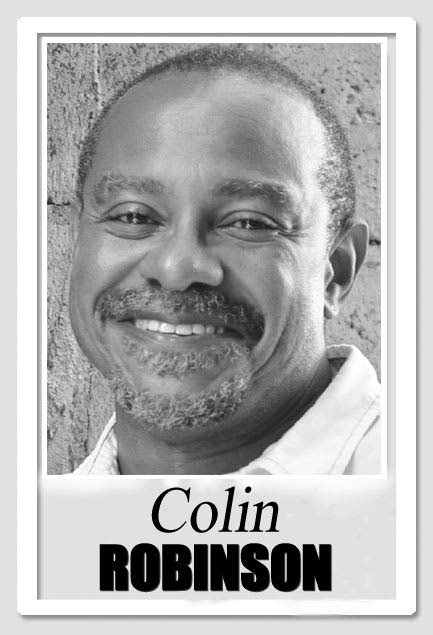Add all 3 – age, health, LGBTI

Does anyone else in the nation find it even curious that six months have now elapsed since last year’s local government elections, and we’re yet to see any official statement from the Elections and Boundaries Commission (EBC) regarding who got elected councillors and aldermen, and with how many votes?
Why is this no one’s priority? No one’s outrage?
For weeks now, across in Guyana, regional peace and democracy have teetered interminably on the accuracy and credibility of counting every vote. Back here, we’re confidently preparing for the the next, parliamentary election. Proposals to amend constituency boundaries have gone to Parliament. The Finance Minister has allocated a $43 million operations budget.
Interesting experimental things are happening on ebctt.com, like interactive constituency maps. A new ID card is reportedly in the works. All delightful.
Yet critical information every citizen is entitled to know promptly – and which is the commission’s core and unique function – somehow doesn’t seem to have risen to a priority for the commission itself, any public figure, or newspaper editor.
Today’s my last commentary on the recovery roadmap process, and two final proposals of eight my team put forward. All our materials remain publicly available online at: bit.ly/RecoveryRoadmapResources_CAISO.
One proposal is as common sense as the idea of the EBC issuing a vote tally after an election.
Judging from his early role in the recovery roadmap process, economist Karl Theodore has won the Prime Minister’s trust.
In a pivotal moment two decades ago, Theodore convinced regional political leaders that if they didn’t invest in addressing HIV, their economies would collapse. It led to lifesaving treatment becoming accessible to people living with HIV across the region.
Our current health minister, who’s wrapped himself in the mantle of chief international public health adherent when it comes to coronavirus, stubbornly opposes those same international authorities when it comes to his personal beliefs about those HIV drugs. He’s used the power of his office to flagrantly defy international public health guidelines and regional political commitments and deny the drugs to people he deems have made irresponsible sexual choices.
His is just one example of how people in various forms of authority – whether security guard, minister, social worker, or permanent secretary – deny access to benefits or services to others because of personal decisions about others’ worth and who “deserves” what.
State workers at all levels should be disciplined for playing god.
That was one of our eight proposals. Simply put.
Nothing needs to change for that to happen. Yet it never does.
In a system in which human capital is a primary resource, discriminatory practices and social exclusion deprive the economy of productive expertise, talent, and skills that remain unharnessed, to the detriment of everyone in society. Scholars, internationally and in the Caribbean, have begun to measure these economic costs of discrimination.
Strengthening human rights protections is one of the cheapest, most cost-effective measures governments can offer citizens in times of hardship. Addressing the vulnerability of specific social groups to those who control access to opportunity ensures a new economy in which no one is left out, and in which all both contribute and benefit.
That’s the kind of language with which the submission opens. And, already, that principle seems taken for granted in the recovery process: Leave no one behind.
But that requires enactment.
That’s the reason for human rights institutions. Because we can’t trust people, given a little power, to not act on their prejudices.
When they created our equal opportunity machinery, politicians were deliberately conservative. They limited access to redress for discrimination to those who could allege a specific status was the grounds; limiting those to seven. There was the obvious: sex, race, ethnicity, and religion. Also included was origin, or where you come from.
But political affiliation wasn’t. Nor age. Marital (but not parental) status was. And, notably for a young country, we included disability in our initial statuses.
The long colourful story of the legislation isn’t retold in the recovery submission, because a consensus has been growing in recent years around three additional statuses that ought minimally to also be included by name. They’re the three that come up time and again when we’re reviewed by international human rights authorities. The Equal Opportunity Commission itself, fulfilling its mandate to keep the law under review has, over time, recommended each be added.
Age. Health conditions. LGBTI status.
As a gay man pushing 60 with cancer, I’m clearly a champion of all three. But so are many others, unions and business chambers, arts groups and a social justice ministry, mental health and youth organisations. They’ve joined a quiet campaign that will return to radio airwaves soon. Watch the cute video in the shared drive.
Adding all three all at once is a way to signal we care about each other and not just ourselves.


Comments
"Add all 3 – age, health, LGBTI"